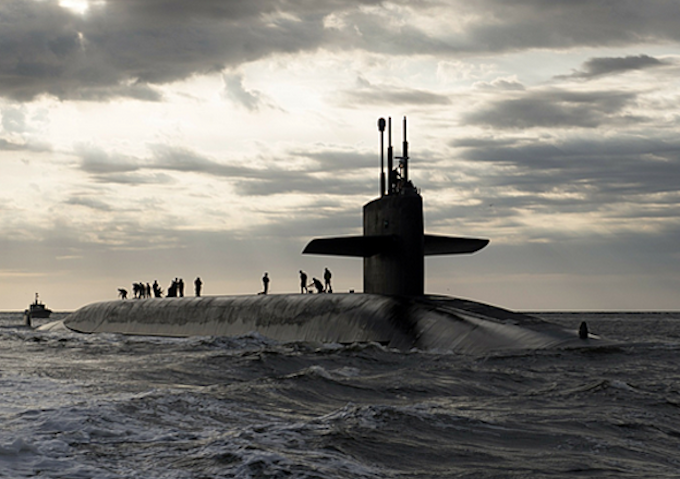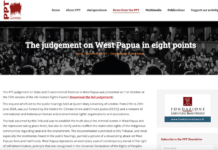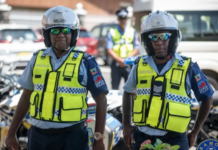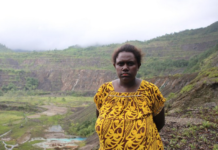
EDITORIAL: By the Samoa Observer editorial board
It perhaps wasn’t a remarkable coincidence that last month Samoa’s former Ambassador to the United Nations called on the United States to ratify a treaty declaring the South Pacific a nuclear-free zone.
Ali’ioaiga Feturi Elisaia, currently Samoa’s High Commissioner to Fiji, made the comments during a Blue Pacific Talanoa series last month to mark the August 29 International Day against Nuclear Tests.
The treaty created by the Pacific Islands Forum (PIF) was called the South Pacific Nuclear-Free Zone Treaty of Rarotonga of which Samoa is a signatory.
- READ MORE: AUKUS pact strikes at heart of Pacific nuclear-free regionalism
- More articles on the Australian nuclear submarine deal
The virtual conference also featured high profile state actors including Fiji Prime Minister and PIF Chair Josaia Bainimarama, PIF Secretary-General Henry Puna and the secretary-general for the Prohibition of Nuclear Weapons in Latin America and the Caribbean, Ambassador Flavio Roberto Bonzanini.
The lineup of the presenters last month underscored the significance of the issue for the region, which very much remains relevant for Samoa and other Pacific Island nations some 25 years after the last nuclear test explosion by France at the Moruroa and Fangataufa atoll test sites on 27 January 1996.
Lest we forget the Bikini Atoll in the Marshall Islands where the US unleashed 23 nuclear weapons between 1946 and 1958 to displace the Marshallese people for ever.
Discussions today around nuclear testing or the use of nuclear energy as an alternative energy source are likely to be associated with protest marches in the 1960s and 1970s with public opinion shifting due to the calamitous effect of the Hiroshima and Nagasaki atomic bombings towards the backend of World War Two in 1945.
The 1986 Chernobyl nuclear power disaster in Ukraine (which was at that time part of The Soviet Union) claimed 31 lives, though in 2005 the United Nations reportedly projected that some 4000 people would eventually die due to radiation exposure.
In March 2011, a 9.0-magnitude earthquake in Japan triggered a tsunami, which overran the seawall of the Fukushima Daiichi Nuclear Power Plant and flooded the nuclear reactor, triggering a failure of the emergency generators to lead to nuclear meltdowns and the leaking of contaminated water into the Pacific Ocean.
Over a decade later the Japan government announced in April this year that it would release 1 million tonnes of contaminated water from the damaged Fukushima nuclear power plant into the Pacific, triggering concerns within the region and leading to calls for an independent assessment.
And it appears we in the Pacific are not out of the woods just yet — as more developed and economically affluent nations dabble with this deadly form of energy in our part of the world — despite being privy to data collected showing how thousands of lives were lost and millions displaced due to the use of nuclear weapons or energy in war as well as peacetime over the past 76 years.
So it is disappointing to see reports emerge over the last couple of days on Australia penning an agreement with the US and the UK to acquire nuclear-powered submarines in a bid to beef up its military arsenal.
Why has Australia become a party to a military pact that could now see conflict return to our peaceful islands some 76 years after the end of World War Two?
We are not interested in your wars and the political ideologies that you continue to flout in your quest for global domination.
Nor are we keen on subscribing to a train of thought promoting oligarchy where all power is centred in an individual.
The Australian Prime Minister Scott Morrison, when defending his country’s decision to sign the military pact with the US and the UK, is of the view that there will be peace and stability in the region due to the partnership.
“She [Jacinda Ardern] was my first call because of the strength of our relationship and the relationship between our countries,” Morrison said when confirming that he had advised his New Zealand counterpart, reports the Associated Press.
“All in the region will benefit from the peace and the stability and security that this partnership will add to our region.”
So what peace and stability is Mr Morrison referring to in his defence of this agreement?
Barring the covid-19 pandemic and its impact on our fragile and vulnerable economies, we in the Pacific are happy where we are.
Our journeys as sovereign nations haven’t been without their challenges and we know the destinations we want to get to with the assistance of bigger nations as well as development partners.
But signing up to a military pact behind the closet and then declaring we in the region will benefit from the peace and stability it would bring is not how friends treat each other.
It is a relief seeing Prime Minister Ardern continuing to maintain the tradition of her predecessors by promoting a nuclear-free Pacific; probably she is the only true friend of the Pacific Islands.
Having lived with and witnessed the ravages of war for close to a century; brought to our doorstep and into our homes without our consent; we expect global leaders to respect the various sovereign nations and their people who make up this huge expanse of an ocean that is now known as the Pacific.
It would be appropriate for Samoa’s first female Prime Minister, Fiame Naomi Mata’afa bringing this to the attention of the international community, in her first maiden address to the United Nations General Assembly.
Samoa Observer editorial on 21 September 2021. Republished with permission.














































